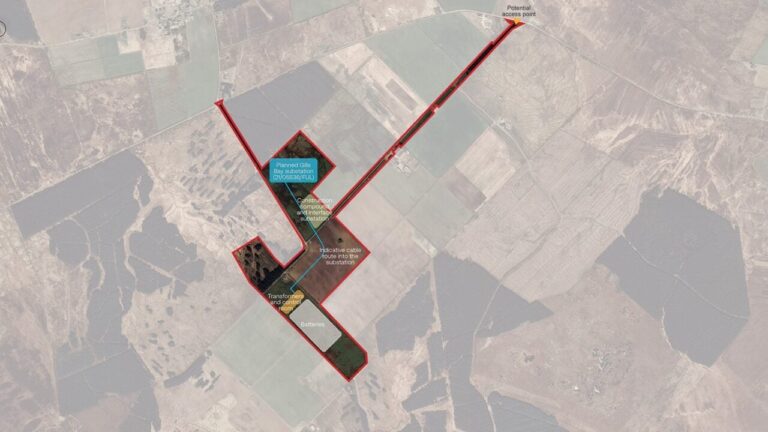Three proposals for battery energy storage system (BESS) projects for the Scottish Highlands will be considered by the Highland Council.
Proposals for Application Notices (PANs) have been submitted for three potential BESS projects, two by Field Energy and one by Forss Energy Storage. Filing a PAN is a legal requirement for major or national developments. PANs must be submitted to the local authority at least twelve weeks before the submission of a full planning application.
The three BESS PANs will be discussed tomorrow (August 7) at a meeting of Highland Council’s North Planning Applications Committee.
Field Energy, which finances, builds and operates renewable energy infrastructure, has submitted planning applications for two 200MW BESS projects, one in Rigifa, East Caithness, and one in Garve, Wester Ross. The applications were filed under the subsidiaries Field Rigifa Ltd and Field Corrimoillie Ltd respectively.
The Rigifa project proposes to develop the BESS at Phillip Mains Farm, which would be connected to the existing Gills Bay substation, while the Corriemoillie project would be located on the site of the former Corriemoillie quarry and connected to the Corriemoillie substation. Both PANs note that consent will be sought for biodiversity improvements on site, but it is not yet known what form these may take.
Meanwhile, Forss Energy Storage has submitted proposals for a 49.9MW BESS within the Forss Business and Technology Park, near Thurso. It is notable that the site already has an existing energy infrastructure, including six operational wind turbines and a combined heat and power plant, with planning permission granted for a seventh wind turbine earlier this year.
The proposed layout indicates that multiple BESS units would be located to the west of the main business park, between two of the site’s wind turbines. Approximately 50 structures will be built at the proposed site, including approximately 30 battery units, substations and outbuildings.

Forss Energy Storage has not indicated when they believe construction on the project will begin if it is approved, but Field estimates that if planning permission is granted, both the Rigifa and Corriemoillie projects would begin construction in 2027 and approximately will take two years.
Major approvals for BESS planning are increasing
More southAnother major BESS project recently received full planning permission in the North East of England.
The 200MW/400MWh, 2-hour Harker project was given “full planning permission for the construction and installation” of the system, located near Carlisle. This project is a joint development between the Canadian Solar subsidiary Recurrent Energy and the Northeast England-based developer Windel Energy. Although construction may now begin, developers are not expected to break ground until the fourth quarter of 2029, due to delays in connecting to the electricity grid. However, construction could start earlier if an accelerated grid connection date is agreed.


